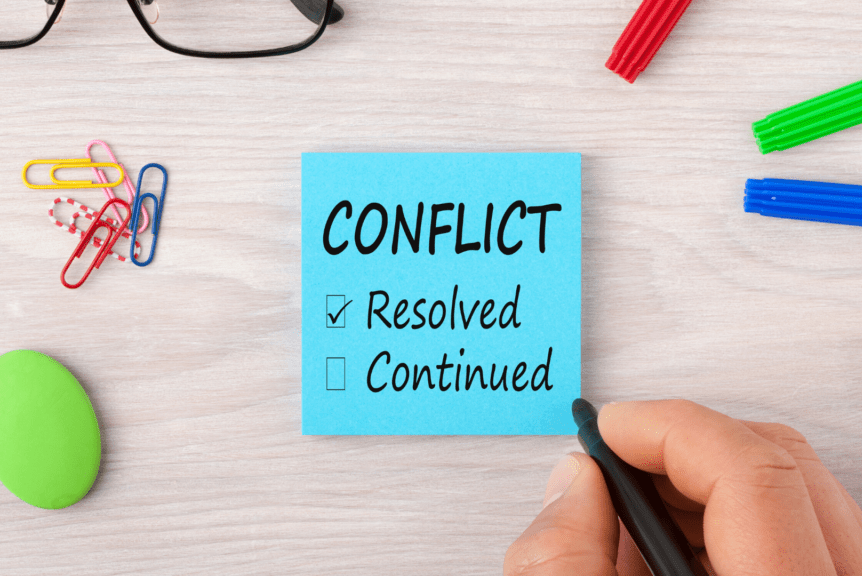One of our clients had two employees who were struggling to get along. Both employees were key contributors, and the business owner was desperate for them to resolve their differences.
It all started when one employee (I’ll call her Susan) was quick to email out policy changes, which the other employee (I’ll call her Tiffany) perceived as snooty. On the flip side, Susan perceived Tiffany as gregarious and outspoken.
Over time, conflict erupted about every little thing. One didn’t acknowledge the other in the hall; fireworks. One didn’t answer the phone on time; fireworks. And on it went.
The owner was at a loss.
She was stressed, the conflict was lowering productivity for the two employees, and the tension was affecting the whole workplace.
This was a job for our resident DISC trainer and coach, Toni. DISC is a leading assessment tool used to assist individuals in understanding their own communication preferences and develop skills for effectively communicating with others. Toni is our experienced conflict mediator (and all around amazing chick).
Resolving Conflict
Both employees took the DISC assessment, and Toni met with each to review their results report.
Toni also put together a collaborative report, which juxtaposes the profiles and provides tools for each to communicate effectively with the other.
In one – yes you read that right – in ONE MEDIATION MEETING, the employees were able to resolve much of their conflict and set ground rules for communicating with each other moving forward.
Toni finds that DISC cuts through a lot of “stuff” that can usually take several meetings to uncover. Holding a DISC report in their hands makes it easier for people to own their behavior, rather than having to spend several meetings getting people to see that the behavior even exists in the first place.
As a result of the mediation and DISC reports, Susan and Tiffany could see the differences in their communication styles and understand the natural areas where conflict was bound to erupt.
Susan could see that Tiffany naturally likes to build relationships. Tiffany could see that Susan naturally focuses on procedures. Where Tiffany might share a change in policy by showing up at your desk to tell you about it, building a relationship with you in the meantime, Susan is focused on getting the procedure out clearly and concisely, seemingly without relationships on the mind at all.
Knowing this, the employees could take responsibility for their part and develop plans for change.
And, the business owner can use the tool post-mediation. She can refer the employees to their results and provide ongoing coaching without Civility Partners’ help.
Neat, right?
Situations like this one are bound to happen in any organization.
Even in our small office where employees are in speaking distance of each other, where we have regular team meetings, and where we get along quite well – things happen.
While our open office concept can foster collaboration, it doesn’t necessarily ensure effective communication.
Register for our March 19 webinar if you want to:
- Learn more about DISC
- Gain insight on your communication preferences
- Get some tools for conflict resolution
- Understand how DISC profiles tie into employee engagement, or
- Brush up on personal leadership skills.
Our webinar’s going to be packed with all that and more.
When it comes to communication, we could all use a little insight and a little self-awareness. It really does play a major role in creating and sustaining a collaborative company culture.
See you on the webinar!
Catherine
P.S. Join us and get some Q&A time with Toni. Ask her your burning questions about conflict resolution and she’ll no doubt have an inspiring answer.


